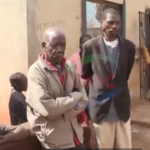
Lawyer in Court to challenge suspension of three Judges in Zambia
Published on September 26, 2024 at 9:20 AM by Robert Ngwira
BARELY a day after President Hakainde Hichilema suspended three Constitutional Court Judges, a lawyer has rushed to the court to challenge the decision.
Tresford Chali has asked the Constitutional Court to grant him an order halting the suspension of Judges Palan Mulonda, Annie Sitali and Mungeni Mulenga.
Mr Chali further seeks an order quashing Mr Hichilema’s decision to accept recommendations of the Judicial Complaints Commission (JCC) to suspend the judges.
Further, he wants a declaration that the President’s suspension of the trio is null and void because it contravenes Articles 143 and 144 of the Constitution.
He also wants a declaration that the jurisdiction of the JCC to hear and determine complaints against judges does not extend to matters where the judge interpreted the law.
On Monday, the President suspended the three judges based on a report from the JCC and authorized under Article 144(3) of the Zambian Constitution.
But Mr Chali is challenging the decision citing the JCC as first respondent while the Attorney General is second.
In the court documents filed yesterday, Mr Chali submits that the suspended judges enjoy immunity from being sued or disciplined for deciding a case in a particular way.
“The judges also enjoy neutrality and independence in their performance of their duties which means freedom from the executive and party politics and vested interest. It also means that they should not be subjected to arbitrarily removal from office,” Mr Chali adds.
The judges have security of tenure of office to remain in office until they retire or resign.
“Article 122 (2) forbids anyone holding a public office, including the President and the respondents, to interfere with the performance of the judge. Article 122(4) mandates any person holding public office including the President and the respondents to protect the independence, dignity and effectiveness of the judiciary”
The lawyer submits that Articles 143 and 144 of the Constitution mandates JCC to enforce the judicial code of conduct and outlines the procedure to be used.
Mr Chali submits that in line with Articles 143 and 144 of the Constitution, JCC cannot, at law, receive or entertain or hear a complaint against a judge for interpreting the law to particular facts, dealing against powerful individuals, making Government to account or for deciding a case in a particular way.
“According to Articles 143 and 144 of the Constitution, the President cannot suspend a judge for interpreting the law.The President cannot suspend a judge on the basis of the judge’s assessment of the facts in a case,” he said.
Mr Chali added that JCC received a complaint from a citizen against the three judges for gross misconduct and incompetence based on how they decided the case of HAKAINDE HICHILEMAA ND ANOTHER AND EDGAR CHAGWA LUNGU AND 0THERS CASE NUMBER 2016/CCZ/0031.
He said in the past, JCC received and dismissed similar complaints on the same facts and about the same judges Anne Sitali, Mungeni Mulenga and Palan Mulondo.
“Your petitioner wonders what has changed now,” Mr Chali submits.
He said the first person to file a petition in the Constitution Court relating to the 2016 eligibility case was Peter Sinkamba and later eight others.
“The President, who himself was a party to the case and lost, received a recommendation from the JCC to suspend judges Anne Sitali, Mungeni Mulenga and Palan Mulonda and he acted on it.
“By virtue of what has been stated, your petitioner contends that the actions of the President and respondents are a gross violation of the Constitution of the Republic of Zambia and violates the independence, neutrality, professional integrity, security of tenure, rule of law, impartiality of judges and the administration of justice”.
Mr Chali said the President’s suspension of the judges will lead to placing the suspended judges in politics.


